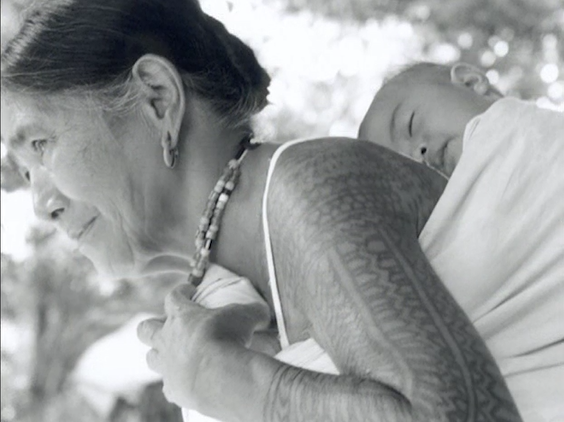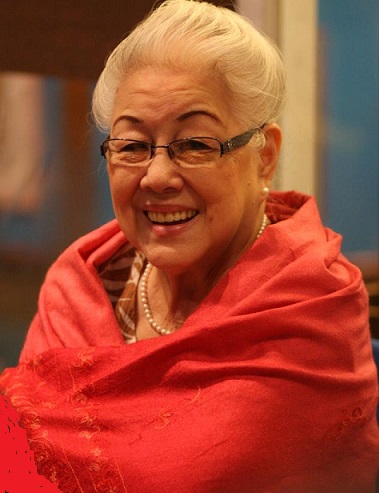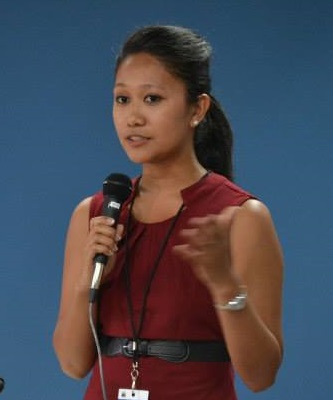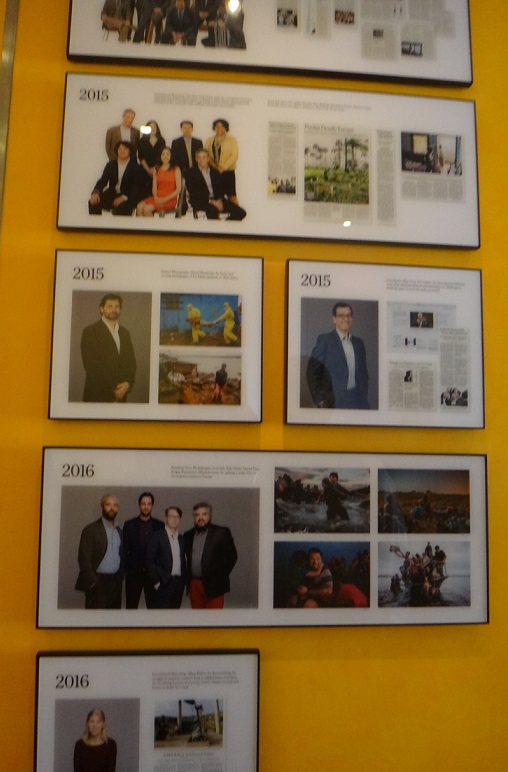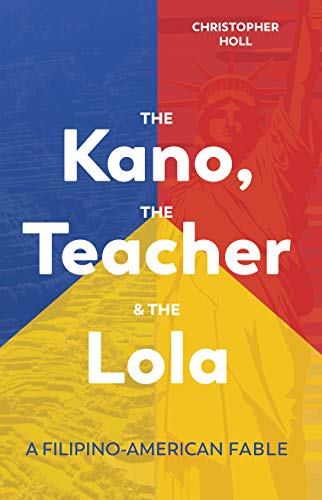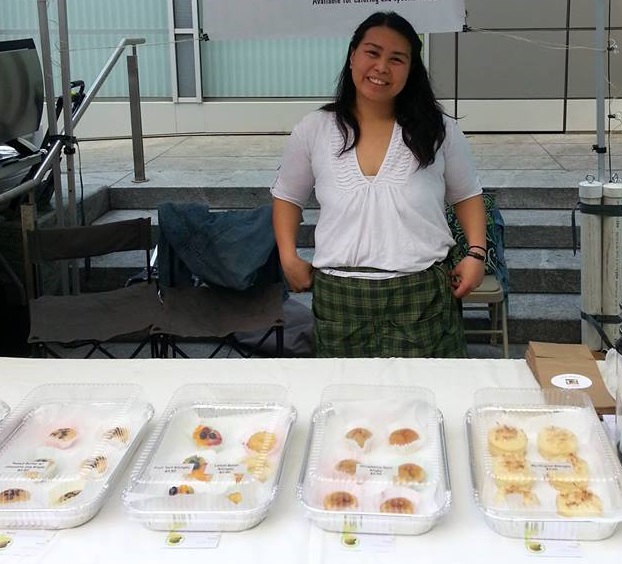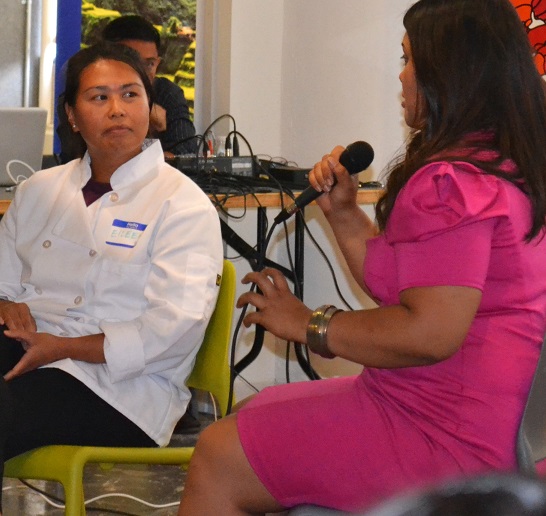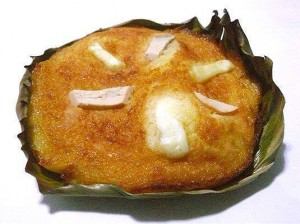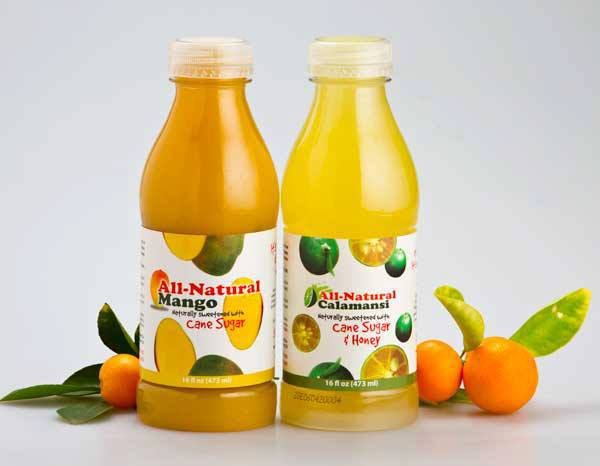After the ‘balut’ comes the mainstreaming of the ‘bibingka’
By Cristina DC PastorIf the “balut” can do it, why not the “bibingka”? Go mainstream, or as Eileen Formanes, 39, said with a shrug and a smile: “Americanize it.”
“I want it to be the next chocolate chip cookie,” she declared to The FilAm followed by sparkling laughter.
Eileen has taken the rice cake of our childhood Christmases – traditionally steamed on a banana leaf and eaten with freshly grated coconut – and given it an all-American twist. Imagine it tasting like peanut butter and jelly or strawberry or s’more. Campfire “bibingka:” What took you so long?
She has been baking “bibingka” full time since she left her job as vice president for human resources at a public relations agency. “My ‘bibingka’ is chewy with a crunchy crust,” describing it on her website. It is the same “bibingka” she brought to her office’s celebration of International Day. The raves from co-workers ignited the idea.
Eileen marked June 10 on her Facebook page as her “first day of freedom.” Which means she has been baking, cooking, experimenting with a medley of flavors and selling at pop-ups and street fairs around Manhattan for more than three months now. Her Bibingka-esk.com, which accepts orders, was up and running a month earlier.
(Bibingka-esk combines the first letters of her name and her daughters’: Eileen, Shea and Kaye)
“I wasn’t happy anymore,” said Eileen about being an HR professional for 20 years. Before a NextDayBetter (NDB) gathering of young Filipino American professionals and students celebrating innovation and entrepreneurship, she said, “It was time to make a change, to do something for myself. I did and never looked back.”
She is constantly finding new ways to reinvent Philippine desserts. “Sometime it works, sometimes it doesn’t so you just keep trying,” she said. What’s important, she stressed, is she is doing something that makes her truly happy.
Some of those who attended the September 14th event thought ditching a full-time job for a start-up at a time when the economy hasn’t fully recovered was a leap of faith. “Tapang niya” was a common comment.
One of the speakers put Eileen’s story in perspective, commenting how Filipinos have never been known to be risk takers or entrepreneurs. “They’re usually told to do well in school, find a good-paying job and stay there until retirement.”
NextDayBetter is a social platform which brings together innovators and entrepreneurs to share experiences and ideas. Explained co-founder Ryan Letada, “Their ideas and actions are Philippine-flavored and rooted in entrepreneurship, design and innovation.”What Eileen is attempting is no different from what Nicole Ponseca of Maharlika and Jeepney restaurants had set out to do three years ago, when she reintroduced Filipino cuisine and made it more appealing to the American palate of younger and U.S.-born Filipinos. Her very popular restaurants have launched the “balut”-eating contest in Brooklyn, which has garnered city-wide media coverage. The “balut” – or duck embryo — is enjoying acclaim in New York as a delicacy for fearless foodies.
Like most entrepreneurs in the food business, said Nicole who shared the stage with Eileen, one needs to have a back-up plan. In her case, she learned how to cook, wash the dishes, mix drinks, wait on tables, etc. so that in the event her staff walks out, she is ready to take over.
“You have to do everything yourself, as you have only yourself to lean on,” said Nicole.
The two met at the “balut”-eating contest at the Hester Street Fair where Eileen was a vendor. “Nicole contacted me and told me about the event with NextDayBetter and she thought that my product and my story would be a good fit,” she said.
Eileen is also a regular at Hester Nights, LIC Flea & Food and Bryant Park. In October, this Bayside, Queens resident will be among the local vendors at QNS Urban Market in Long island City.
“Yes, walking away from a FT job is quite scary…but is there really a good time to do it?” she said. “I’m a hard worker and I’m determined to succeed.”
Pulitzer Award-winning journalist Jose Antonio Vargas made reference to the “Golden Age” of Filipino culture in America and how it’s time for FilAm culture to flourish after being the underdog despite a rapidly growing population estimated at more than 4 million.
“This is especially true in the areas of theater, design and food,” he told reporters. “It’s time. I feel the energy of it.”

